A Guide to Pocket Knife Handles: Types, Materials Used and Maintenance
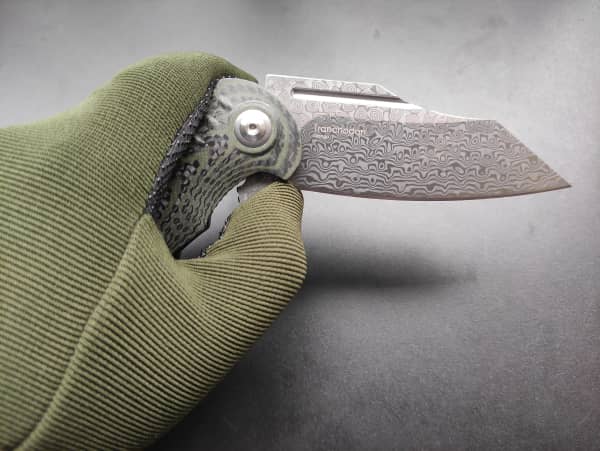
One of the most important parts of a knife, be it a pocket knife or fixed blade, is the handle. While the blade takes care of the cutting, it is the handle that makes all this possible. Otherwise, what you would have in your hand is nothing more than a brute tool that could hurt you back.
When designing knives, manufacturers pay a lot of attention to the handle. We are going to explore pocket knife handles, the types that exist, and the materials used in making them as well as the many techniques one can use to maintain them. If you want to get a pocket knife sometime soon, then this is for you.
Common Metals
A good number of pocket knives have handles made of metal. This not only makes them look the part and last longer, but they are made to give the user the best grip and add some extra weight to the blade to make it feel more balanced. The following are the most common metals used to make pocket knife handles.
Aluminum
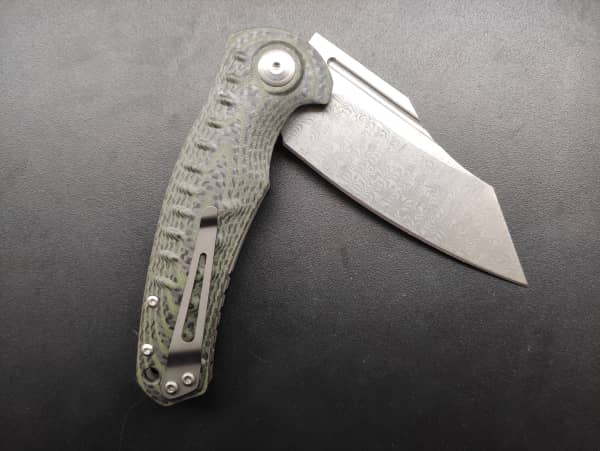
Aluminum is one of the few metals that is not affected by rust. It immediately forms a protective layer on the surface that acts as the buffer between the atmosphere and the surface of the metal. This has made it the ideal material to make pocket knife handles with. The metal can also be anodized to create any color you may want, and that's the level of aesthetics that all pocket knife owners usually aim for.
Pros
- Lightweight
- Very tough and durable
- It is compatible with colors
- Doesn’t rust
Cons
- Prone to scratches and dents
- Uncomfortable to hold in cold climates
- It must be textured for the grip to certain
Stainless Steel
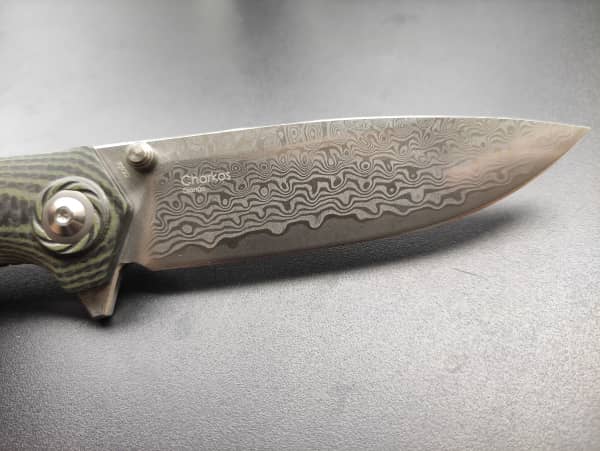
This is the most commonly used metal in the making of pocket knives and handles. It is tougher and heavier, and resistant to most forms of corrosion but not entirely impervious to rust. It requires a high level of maintenance to ensure that it serves you for a sling as you need before you start thinking of replacements.
Pros
- Cheap to source and make
- Highly durable
- It has a high level of corrosion resistance
- Great for heavy work
Cons
- It can be too heavy
- High maintenance needs
- It is not ideal for cold climates
Titanium
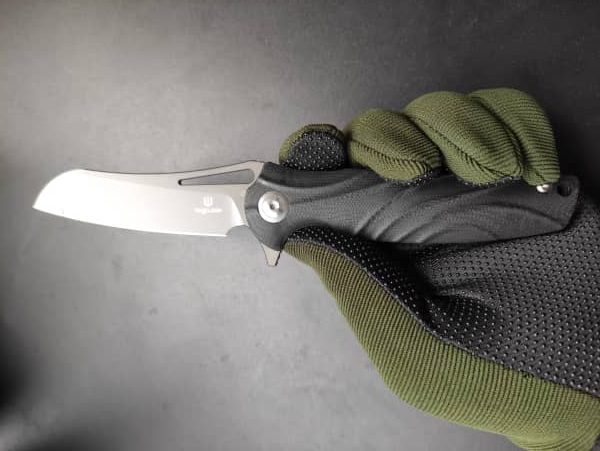
Titanium is one of the hardest metals known to man and at the same time, it is surprisingly lightweight. But the reason why you don’t come across pocket knives with blades and handles made out of titanium is the cost. They are extremely expensive and can only be found in high-end knives. Having it as a handle has some benefits and drawbacks, as discussed briefly below.
Pros
- Lightweight
- Highly durable
- A poor conductor
- Highly resistant
Cons
- It can freeze up in extremely cold climates
- It is not entirely indestructible; it all depends on how you handle it
Man-Made Synthetics
These are special types of materials that are combined with others to create an entirely new type of element that is used to make knife handles. They may not be as tough as metals, but they do compensate for that with great looks and good grips. Some of the most common types under this category include the following.
Carbon Fiber
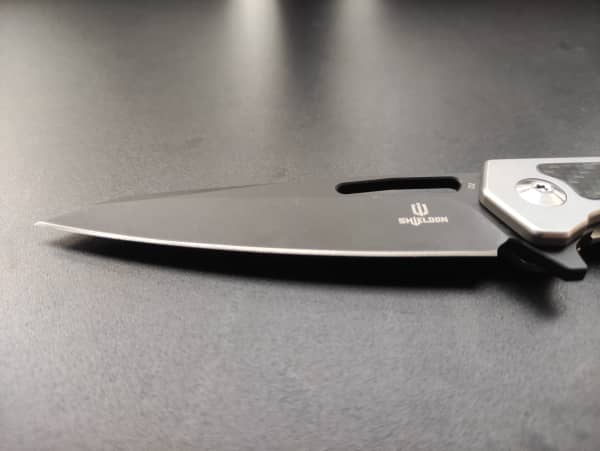
Carbon fiber has come to be associated with luxury in the knife world, and there's a good reason for it. It is a highly durable material that has a very classy appearance, and this has greatly helped knife manufacturers to bring their best when it comes to design. Some of the highs and lows of using carbon fiber on pocket knife handles are as follows.
Pros
- Outstanding looks
- Great durability
- Impervious to corrosion
- Lightweight
Cons
- It can be very brittle
- Can be damaged by hard impacts
- Very costly
Fiberglass
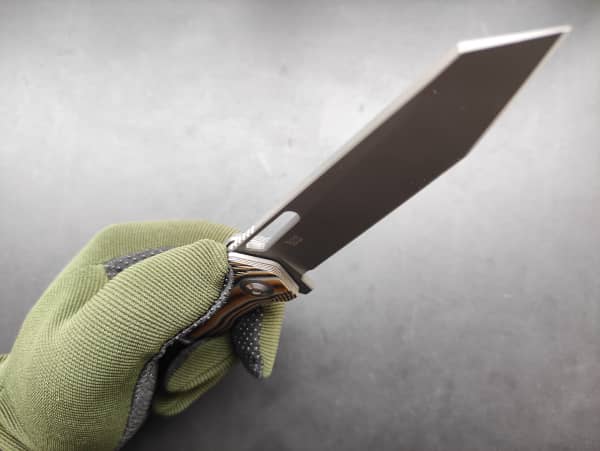
This is made by combining glass, plastic, and a resin binder to create flexible and durable materials that can be used to make knife handles. They are almost similar to carbon fiber, only that this is cheaper and comes in varying colors. Fiberglas continues to be sued increasingly due to the ease of manufacturing and the fact that they don’t age or scratch easily.,
Pros
- Great design
- Aesthetic options
- Impervious to corrosion
Cons
- It can be brittle
- Can have a very cheap plastic look
Natural & Organic
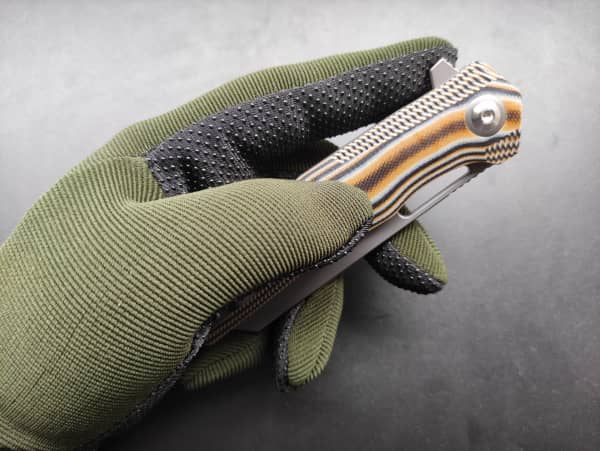
These are handles that are made using naturally occurring materials like cowhide, wood, bone, ivory, and any other thing that can be derived from animals. They are one of the most stylish materials to use on handles and also the cheapest since they can be sourced quickly. A majority of them are handmade, and this makes for some of the most stylish pocket knife handles you will ever come across in your life.
Pros
- Great design options
- Are compatible with all colors
- They are impervious to rust
- Great grip
Cons
- They don’t last for very long
- They are more ornamental than functional
- Some, like ivory, are illegal.
Conclusion
The handle on your pocket knife matters a lot. It offers grip, aesthetics, and the necessary weight that gives the entire tool the needed balance to make it more functional. When selecting a pocket knife, pay close attention to the handle, hold it in your hands to get the feel before making a decision. For more information on how to get around this, check out our website (Shieldon - knife manufacturer) and have any questions you may have addressed by our team of experts.
You can also follow us through the following ways:
https://www.facebook.com/ShieldonCutlery
https://www.instagram.com/shieldon_knives_and_tools/
https://www.youtube.com/channel/UC_Dz--HODWHFY4AaUF0z11Q
https://twitter.com/Shieldonknives1/
https://shieldonknivesandtools.tumblr.com/
https://www.linkedin.com/company/72285346/
https://www.pinterest.com/shieldonknivesandtools/
More video introductions:
https://www.youtube.com/watch?v=br9NK4CrTog
https://www.youtube.com/watch?v=SdoMON7UWDM
Article source: A Guide to Pocket Knife Handles: Types, Materials Used and Maintenance | Shieldon

